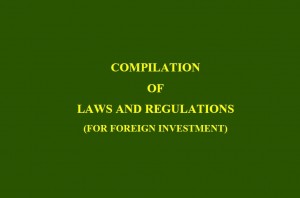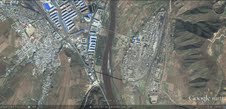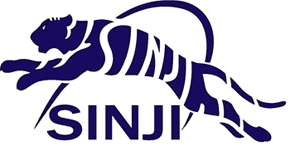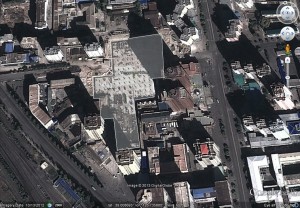UPDATE 2 (2013-5-24): South Korea has again requested that the DPRK repay past food loans. According to Yonhap:
South Korea again called on North Korea Friday to repay millions of dollars in loans provided in the form of food since 2000, the Unification Ministry said.
The impoverished North missed the June 7, 2012 deadline to repay South Korea US$5.83 million in the first installment of the $724 million food loan extended to the North in rice and corn. The latest call is the South’s fifth demand made on the North to repay its debt.
Seoul’s state-run Export-Import Bank (Eximbank) sent a message on Thursday to Pyongyang’s Foreign Trade Bank, calling for the repayment, Unification Ministry spokesman Kim Hyung-suk said in a briefing.
The South Korean bank also sent another message the same day, notifying the North of its forthcoming June 7th deadline to repay the second installment of $5.78 million, the spokesman said.
“North Korea should faithfully abide by what they previously agreed to with the South,” Kim said, calling for the repayment of food loans.
Amid a conciliatory mode under the liberal-minded late President Kim Dae-jung, Seoul started to provide food loans to the famine-ridden country, providing a total of 2.4 million tons of rice and 200,000 tons of corn from 2000-2007.
Under the deal, the North is required to pay back a total of $875.32 million by 2037.
Read the full story here:
S. Korea again asks North to repay food loans
Yonhap
2013-5-24
UPDATE 1 (2012-7-15): South Korea claims the DPRK missed a deadline for explaining how it intended to repay South Korean “loans”. According to Yonhap:
North Korea missed the deadline Sunday for notifying South Korea of how it will repay millions of dollars in loans provided in the form of food in 2000, resulting in Seoul having the right to declare Pyongyang has defaulted on its debt, an official said.
South Korea sent the North a message on June 15 that the communist nation was supposed to have paid back US$5.83 million in the first installment of a 2000 food loan worth $88.36 million by June 7. The North was required to respond to the message in 30 days.
That deadline passed on Sunday with the North remaining silent, giving South Korea the right to declare the North has defaulted on the debt, according to a government official in Seoul.
But South Korea is unlikely to go ahead with the declaration any time soon as it would have little effect on the North. The communist nation remains largely outside of the international financial system and the prospect of national default is unlikely to force it to repay its debt.
Officials said they are considering sending Pyongyang a message again calling for debt repayment.
Widespread views are that it won’t be easy for the North, which is still struggling with food shortages, to pay back its debt, but officials said the country could repay the debt in kind as it did before. In 2007 and 2008, the North repaid some debt with $2.4 million worth of zinc ores.
After the two Koreas held their first-ever summit in 2000, South Korea provided the North with a total of US$720 million in loans of rice and corn until 2007. Including interest accrued on the loans, the North is required to repay some US$875 million by 2037.
Such aid has been cut off after the South’s President Lee Myung-bak took office with a pledge to link any assistance to the North to progress in international efforts to end Pyongyang’s nuclear weapons programs.
The Daily NK also covered the story.
ORIGINAL POST (2012-6-8): According to Yonhap:
North Korea has not shown any signs of repaying the loans South Korea extended in food grains since 2000 although the initial day of the scheduled repayment passed as of Thursday. The South Korean government provided North Korea grain loans worth US$725 million for seven years until 2007, including 2.4 million tons of rice and 200,000 tons of corn. The total principal and interest North Korea should repay for the next 20 years is estimated at $875.32 million.
North Korea was scheduled to pay South Korea $5.83 million by Thursday for the loans extended to it in 2000. Korea Eximbank, which is in charge of trade finance with the North, notified its counterpart the Chosun Trade Bank of North Korea of the repayment obligation Monday but North Korea had not responded of Friday.
The former South Korean governments led by President Kim Dae-jung and Roh Moo-hyun provided an estimated 1 trillion won (US$850 million) to North Korea from 2000 to 2007 under the sunshine policy. South Korea provided an additional 1.37 trillion won to North Korea to finance the construction of a light water reactor in order to suspend North Korea’s nuclear development. All the loans to the North were taxpayer’s money.
…
North Korea should show sincerity in the repayment of these loans for the sake of its future. If it fails to do so, the North will encounter substantial difficulties in accessing further loans from the international community. North Korea also has failed to repay loans it borrowed from the old Soviet Union. Russia reportedly had to reduce 90 percent of the Norths loans, worth $11 billion.
If North Korea has difficulties repaying its debts to South Korea in cash, it should sincerely discuss alternative measures to repay the loans with the South Korean government.
The South Korean government should positively consider measures to get the money back in kind, such as in mineral resources. North Korea should understand that if it fails to show the minimum sincerity on the repayment of its debts, it will experience much more difficulty in attracting economic assistance from the outside world.
The Choson Ilbo reports this additional information:
In 2007 and 2008, South Korea also gave the North $80 million worth of raw materials to produce textiles, shoes and soap. At the time, North Korea repaid 3 percent of the loan with $2.4 million worth of zinc ingots. Repayments of the remaining $77.6 million become due after a five-year grace period, so North Korea must start repaying $8.6 million a year every year for 10 years starting in 2014.
Seoul also loaned Pyongyang W585.2 billion (US$1=W1,172) from the Inter-Korean Cooperation Fund so it could re-connect railways and roads with the South that were severed in the 1950-53 Korean War. And it provided W149.4 billion worth of equipment to the North. The North must repay that loan in 20 years with a 10-year grace period at an annual interest of 1 percent.
It also seems unlikely that South Korea will be able to recoup W1.37 trillion plus around W900 billion in interest it provided North Korea through an abortive project by the Korean Energy Development Organization to build a light-water reactor.
The loans amount to a total of around W3.5 trillion, which the South will probably have to write off.
The Daily NK also reported on this story.
Read the full story here:
North Korea should show sincerity in repaying South Korea loans
Yonhap
2012-6-8
N.Korea Misses 1st Loan Repayment Deadline
Choson Ilbo
2012-6-8




